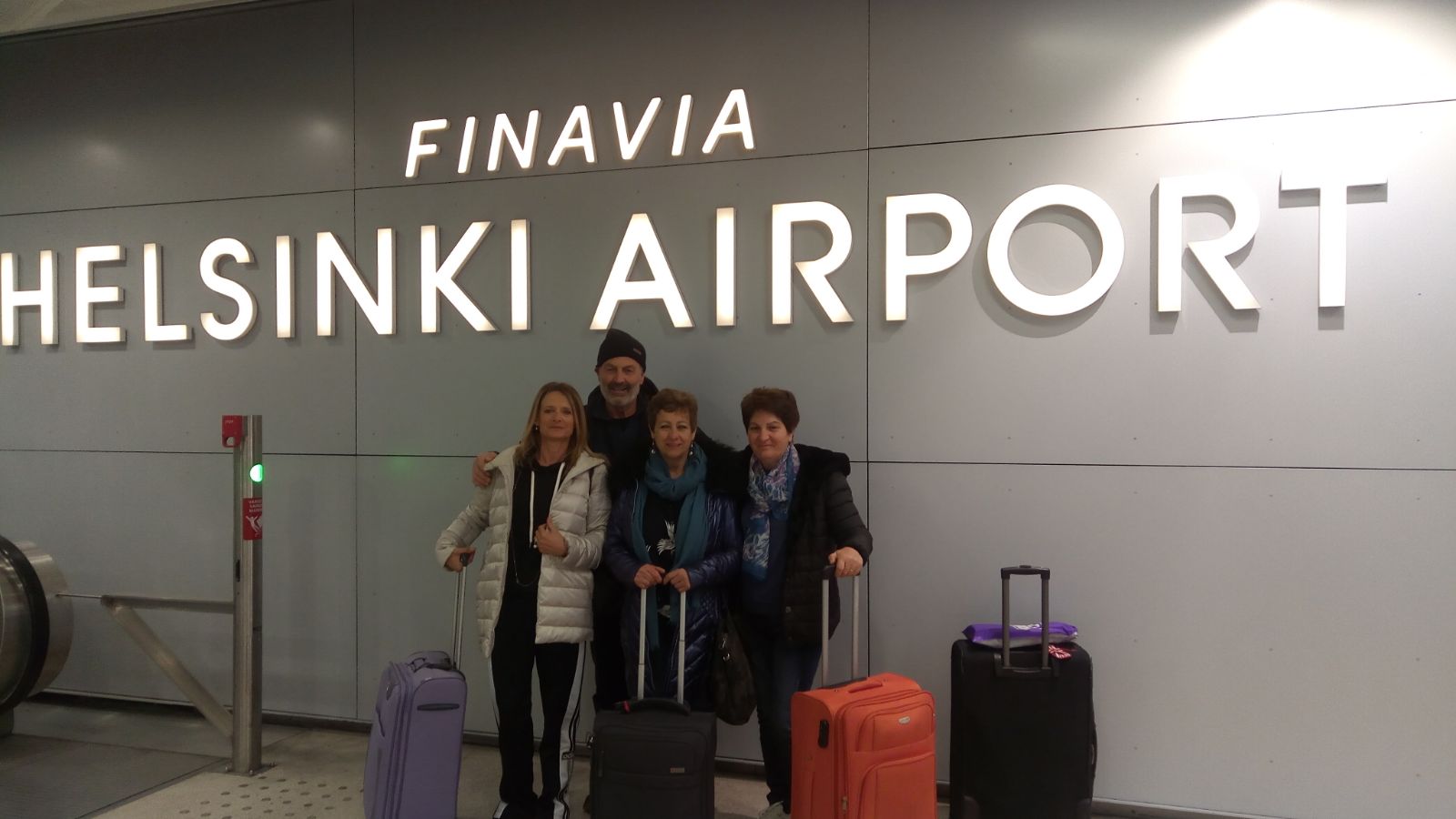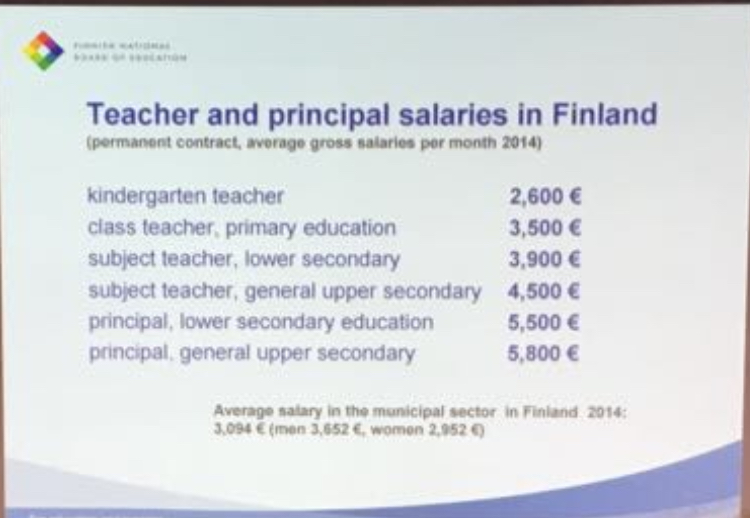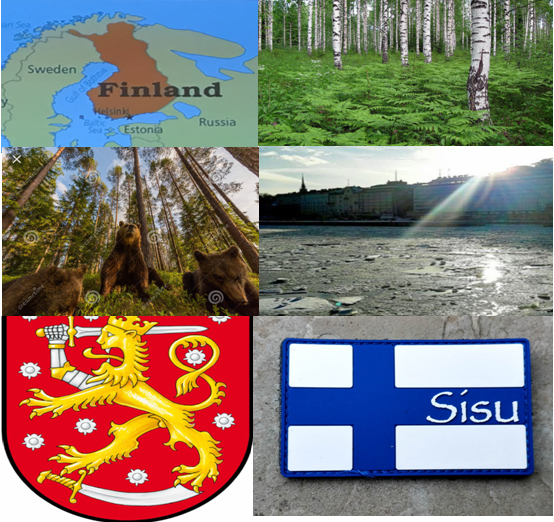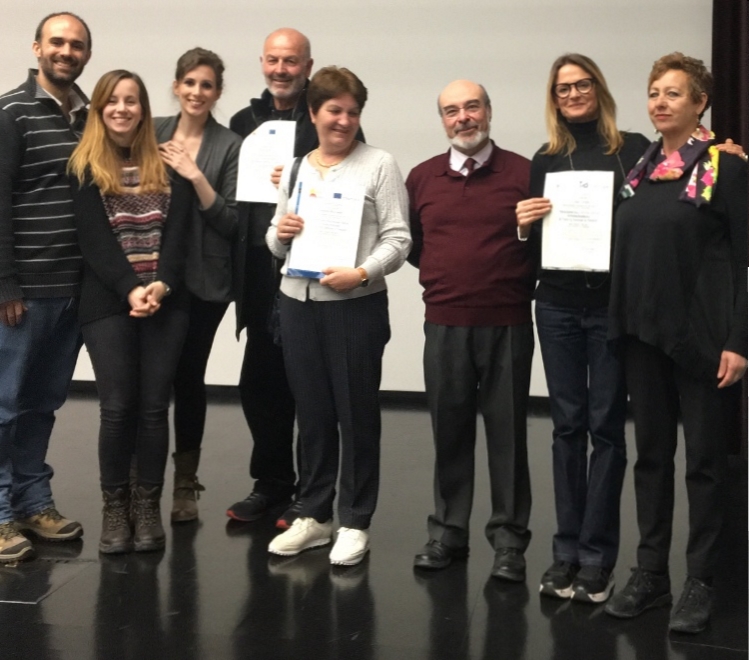Helsinki, 15 aprile 2018 – 21 aprile 2018
(Gruppo A: Cosima Dima, Natalina Muscatello, Oreste Fazzi, Rachele Corallo)

Course program

Scarica tabella delle attività (activities timetable)
Experiencing an experience
Sunday, April 15th
Venue at Kansallismuseo- the National Museum of Finland- Auditorium , meeting with the President of the Organization partner English Matters Eduard Marin, who welcomes 128 participants, coming from 19 European countries and Mongolia.
After the introduction to programmes, the participants have familiarized with one other in an international and collaborative way. The coordinator Mr. Marin has focused his speech on the educational, cultural, economic, historical and geographical aspects of Finland, underlining the importance they have on the Finnish educational system.
Grouping activity: participants have been devided into six mixed groups , who will work together until the end of the course.
The atmosphere has been relaxing and friendly thanks to the expertise of Mr. Marin who has pointed out the importance of teachers’ role for students’ growth both for their education and life.
Monday, April 16th
Venue at Senate Square.
Field project I, from 10:00 to 12:00 Images of Finnish Society in Helsinki. Thanks to our guide Katrina we have discovered and apprecieted the beauty and the soul of Finnish society, strolling in the city with our European mates, has allowed us to be immerged in the unique and typical Finnish atmosphere made up of rain, fog and frozen sea water.
Field project II, from 14:00 to 17:30.
The first Coference held by Professor Anna Nolvi, has given us very interesting insights into the Finnish Educational system and Culture, widely considered to be the best in the world, where teaching is a profession of prestige and teachers have great authority in school and society being highly trusted.
In the second Conference professor Vesa Rihanen, teacher of History and Social Studies and vice Principal, has outlined the key events in Finnish history, underlining the tense relationships between Finland and respectivily Sweden, Russia and Germany.
Tuesday, April 17th
Educational Study Visits to School I: educational organization and management of learning at Pohjois-Tapiolan Koulu in Espoo. This morning we have been welcomed by the Principal of the school Mr. Petri Kangas with some of his teachers and two students who have illustrated to us their school system based on a personalized timetable, organization of curricula, students’ service and how through an autonomous and flexible method they try the best way to reach the qualification requirements. Our international group has then been showed around the craft laboratories: metal and wood working, cookery and textile, where students are taught the importance of manual and collaborative work. We have shared lunch break with the school staff and the students,a great moment of integration of school community.
In the early afternoon we have participated in English classes, we have noticed how young students are confident in the use of the English language. After our day at school our reflections focus on understanding how their effective system can inspire us to improve ours.
Wednesday, April 18th
Educational visit to Espoonlahden Koulu ja lukio. Today the coordinator of the visit Mr:
Markus Kytola has welcomed us. He has showed us around the classrooms where we have noticed the relaxing and friendly atmosphere where the students were studying lying down on very comfortable cushions in an atonomous way, according to the Finnish Individual Learning model, where the teacher acted as a mentor. What we have learned from the visit, the illustration of the educational system as well as our participations in the classes, is the real efficiency of it, considered to be the best in the world.
The key words of the Finnish school system are with no doubts: less is more, quality over
quantity, personalitation, trust-based responsability.
In the afternoon Field project II at the Finnish History National Museum, where we have had a deep immersion in the historical soul of the country .
The last part of the afternoon has been dedicated to group work for the presentation of the participants’ Portfolio.
Thursday, April 19th
Today, we have been visiting the third school on our schedule (programme), again in the district of Espera the Mainngin Koulu or Mainiki School in Swedish. We have been kindly welcomed by the principal. Mr. Eiro Kling who has, like his colleagues in the other two schools, illustrated the main aspects of the way in which his school works. The really striking and original fact however is that our group of teachers has been divided into two subgroup which have been shown around the premises of the school by six fantastic students in 5th, 8th and 9th grades. These Finnish students have made us know all the important parts of the school, classes, all kinds of laboratories, chemistry, physics, music, wood and metal work, home economics, textile, drama . They have shown great kindness, helpfulness, good communicative skills, ability in dealing with people and managing different situations.In the afternoon we have visited the picturesque medieval town of Porvoo, where we have learnt some interesting news about the history of the old town adding it to what we had already learnt about Finland.
Friday, April 20th
Field project III Tallinn (Estonia).
Today the trip to the capital of Estonia, amazing Medieval town, has given us the chance to spend some more time with our Erasmus friends, sharing impressions and reflections . We have learnt a lot about Tallinn which encompasses an interesting mix of old a new. The capital , considered also a major digital capital worldwide, is home to a medieval town declared World Heritage Site by Unesco in 1997 and European Capital of Culture in 2011. Tallinn “Old Town” has the peculiar ability to make people travel back in time to 13th-16th centuries, wandering around its gothic buildings and churches, towers, medieval walls and romantic alleys.Tallinn suffered the Soviet bombing in 1944 . After the war it was under the Soviet occupation. Estonia became indipendent in 1991.
Going around we have completed our cultural visit by tasting the delicious local food, drinks, and visiting the souvenie shops.
Saturday, April 21st
Venue: Sokos Hotel Presidentti.
Presentation of learning portofolios , Evaluation.
Today the last day of the Structured Course, Mr. E. Marin the president has illustrated some dissemination strategies, pointing out, the importance of scattering new ideas in our community and once more stressing the concept that we are here on behalf of our students to change not so good practices into good practices. Later the different groups have presented their learning portfolio, concerning mostly Finnish culture, the Finnish educational system and practical applications of it. At the end of the Conference the participants have recieved their Certifacate of Attendance to the course, they have thanked the organizers for their kindness and exchanged mutal greetings.
Education in FINLAND
Everything in Finland revolves around education.
Education is free at all levels including university.
Education is personalized. Each student's learning pace is respected.
Teachers do not compete with each other. What they do is collaborate and share projects.

Image of Finland

the delivery of the final certificate


